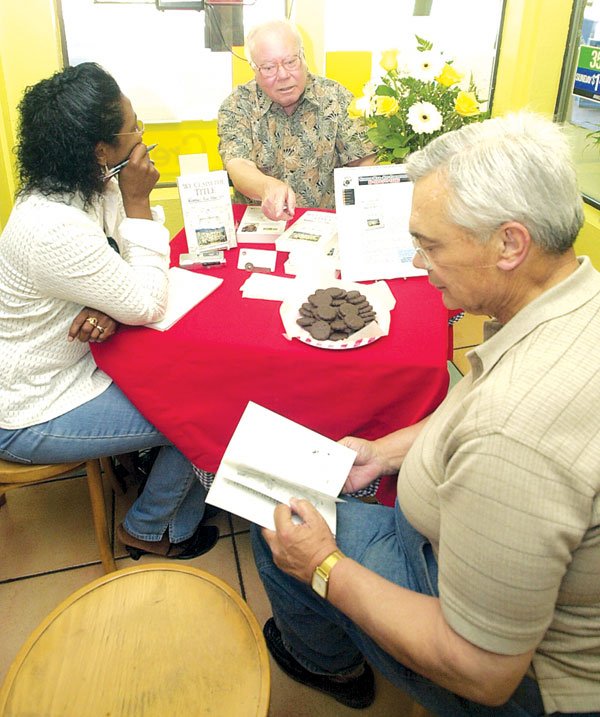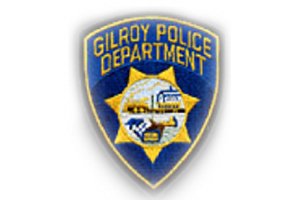MORGAN HILL
– Burton F. Anderson weaves battle-tested wisdom and true
stories of combat in his memoir of his experiences in the Korean
War, a war that has been forgotten by many.
MORGAN HILL – Burton F. Anderson weaves battle-tested wisdom and true stories of combat in his memoir of his experiences in the Korean War, a war that has been forgotten by many.
Anderson, a Morgan Hill resident who served in the U.S. Marine Corps during the war, recounts recounts stories that comrades told him and includes letters he sent home from the war over 50 years ago in his book “We Claim the Title: Korean War Marines,”
Anderson also uses dialogue that draws readers inside a war and the minds and emotions of real characters.
“I’m a storyteller. I tell pretty good stories,” said 73-year-old Anderson, who really doesn’t consider himself a writer.
Anderson described how he dragged a buddy, who had been shot in the buttocks over his shoulder and how he stepped gingerly through a mine field in the mountains of South Korea.
Anderson said that after being an ammunition carrier and hauling around a 100-pound pack – including his sleeping bag, rifle and two 20-pound metal cans of machine-gun ammunition that took 250 rounds – he was ready to become a gunner.
“Time for my time on the gun,” Anderson said.
But one day, a platoon leader asked Anderson to become his runner. He said that runners ran for anything the platoon leaders asked for, even coffee.
He no longer had to be out in the front, but could be back at headquarters. Instead of carrying ammunition, now he carried a 10-pound walkie-talkie.
As a writer, Anderson said that he likes to reuse sentences to compel readers to see what will happen next.
It took Anderson eight months to write the book and almost three years to research. The book includes 5,000 years of history in a little over 400 pages and features maps, copies of letters Anderson sent home during the war, poems written to him, along with pictures of him and his buddies on the battlefield.
Anderson said that U.S. troops were killed at a high rate during the Korean War, saying that for every 100 U.S. troops, 50 were killed in action.
He also said that the immediacy of the Iraq War is different from the Korean War because most people did not have televisions during the early 1950s. They went to the theater to get war updates.
By the time film from the Korean War arrived its immediacy was much diminished; often, therefore, newspapers and radio remained the media of choice.
Back then, television film was processed and produced in Japan and had to be transported by air to broadcasters. Anderson saw his first television set when he returned from the war in 1951.
He said that the Korean War had many firsts. It was the first racially integrated war. It was the first war that used Marine helicopters to bring in supplies and carry out the wounded. Two days before Anderson’s 21st birthday, he was wounded with shrapnel in his shoulder.
“I was on that first helicopter,” Anderson said.
Anderson believes that troops of the Korean War experienced post traumatic stress disorder. He said that after talking to his buddies from the war about things each thought were unique to them, he learned they too were suffering from some of the same emotional rollercoaster feelings.
Forever changed by the experiences of war, Anderson said writing the book was cathartic and helped him shed some of the emotions, loss and war experiences he has held onto all these years.
“The challenges and experiences of the military are things most people will never understand,” Anderson said.
Earning both bachelor’s and master’s degrees in English and Education, he worked as a teacher before beginning his 30-year career in the aerospace industry.
His writing career began after he attended his 50th high school class reunion in 1997, when a reporter from the local Enid, Okla. newspaper asked him if he wanted to write about some of the pictures they were looking at in his high school yearbook.
As a freelance writer, Anderson continues to write for his hometown and local newspapers.
“We Claim the Title: Korean War Marines,” was first published in November 1994. The newest edition, published in February 2000, has been edited to include 26 new pictures as well as updates on some of Anderson’s boot camp buddies.
When Anderson is not signing books at the Marine Corps Air Ground Combat Center in Twentynine Palms, Calif. and sharing stories about Korea, he and Joanne, his wife of 50 years, spend time relaxing in their desert cabin which sits on five acres in Twentynine Palms.
Anderson said he likes watching the sun come up and the moon go down.
“And decide whether I am going to rake sand or water rocks,” he said, smiling.
“We Claim the Title: Korean War Marines” by Burton Anderson is available for $24.95 at BookSmart, 17415 Monterey Road, in Morgan Hill. Details: 778-6467.















